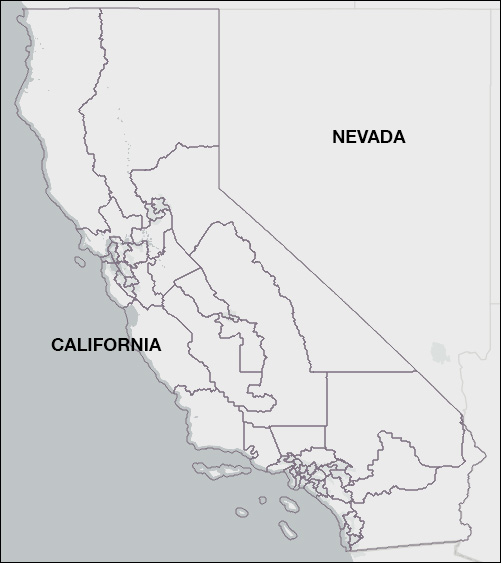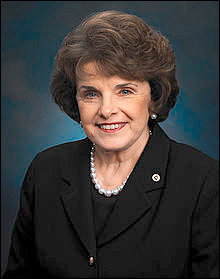After the June 5 California primary, most observers were stunned to see two Republicans, Rep. Gary Miller (R-CA-42) and state Senate Minority Leader Bob Dutton (R), qualify for the general election in San Bernardino County’s 31st Congressional District. Considering that this new seat should normally vote Democratic in at least six of every 10 elections, the double Republican primary outcome had not been foreseen. His party’s San Berdo setback did not deter Democratic Congressional Campaign Committee Chairman Steve Israel (D-NY-2) from continuing to declare that his team will gain at least four to five California House seats, however.
A look beyond the Obama-McCain 2008 numbers on the newly crafted California Citizens Redistricting Commission congressional map tells a different story. Right now, it appears the Democrats are safe in 28 California seats and Republicans’ 13, with 12 seats in competitive Democrat vs. Republican situations. If these numbers are correct, then the D’s would have to win 10 or 11 of the dozen most competitive districts to reach Israel’s projection of leaving California with 38 or 39 Democratic seats.
Though President Obama carried all 12 of the marginal seats in 2008, he did so under his statewide 61 percent winning percentage in every district. Looking beyond the surface of the presidential race, we find that the Republican attorney general nominee, Los Angeles District Attorney Steve Cooley, who ended up losing statewide by less than one percentage point, actually carried all 12 of these CDs. Additionally, and possibly even more telling, Sen. Barbara Boxer (D), a 52-42 percent winner statewide two years ago, lost nine of the 12 districts to Republican Carly Fiorina. Gov. Jerry Brown (D), a 54-41 percent victor over Republican Meg Whitman in 2010, won eight of the competitive dozen.
Therefore, with Republican performances such as these, what are Israel and other Democratic partisans looking at when they predict lofty Golden State gains, numbers they must attain to have any chance of competing for the House majority?
One argument is that the turnout model will certainly be different from the one that came to fruition in 2010 because, as the theory goes, President Obama will energize the electorate and increase Democratic turnout. That the voter participation rate will exceed the 2010 mid-term performance is almost certainly true, but with a virtually uncontested presidential race in California and Sen. Dianne Feinstein (D) facing little credible re-election opposition, will the turnout drive be as strong as the national Democrats believe? Conversely, with a public employee pension reform measure on the statewide ballot and considering the cities of San Jose and San Diego already passed similar propositions in June, could this issue actually provide more juice for Republicans and right of center Independents as opposed to Democrats? The answer is, quite possibly.
Turning to some of the individual races, in order to achieve their statewide goal Democrats would have to beat at least three of the four following incumbents: Dan Lungren (R-CA-7), Jeff Denham (R-CA-10), Mary Bono Mack (R-CA-36), and Brian Bilbray (R-CA-52).
But only in San Diego, despite Republicans outnumbering Democrats 36-33 percent in the new 52nd District, is there a legitimate crack at a vulnerable Republican incumbent. Rep. Bilbray received only 41 percent in the jungle primary but new Democratic opponent Scott Peters, who placed second with only about 23 percent, has vulnerability from his previous controversial service on the San Diego City Council. So, even here, which seems to be the Democrats’ best chance to unseat an incumbent, their conversion bid is far from secure.
Republicans also look to have the upper hand in Districts 21 with Assemblyman David Valadao reaching almost 60 percent in the open seat Central Valley primary, the marginal 26th where they have the stronger candidate, Ventura County state Sen. Tony Strickland, and even in Democratic leaning District 41 (Riverside County), where the combined Republican primary vote formed a majority. Additionally, the Democrats feature a general election candidate there who has already lost three previous congressional campaigns, while the Republicans are promoting a powerful county Supervisor.
Right now, the Democratic victory total is nowhere close to winning 10 or 11 of these 12 seats, as the realistic sum appears closer to five. Instead of gaining four or five California districts, it’s more feasible that the parties will remain constant in their 34D-19R delegation ratio, or quite possibly lose a seat. Such a result virtually guarantees the continuance of the House Republican majority.



